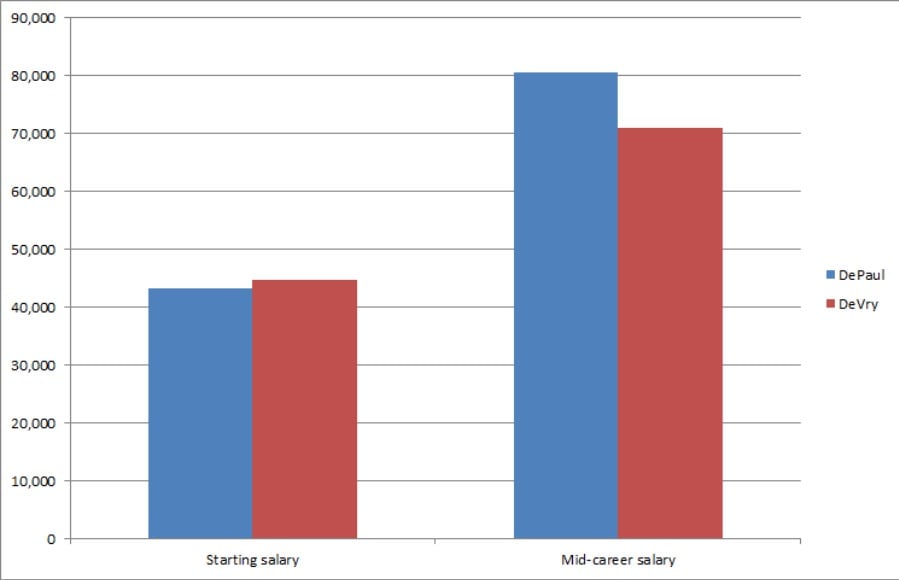Online degrees offer a better return on investment but little chance of getting rich
For the first time since the 1990s, college enrollment in the US is falling. Suddenly, everyone’s skeptical about the value of a degree. But the debate has mostly centered on the value of brick-and-mortar campuses.

For the first time since the 1990s, college enrollment in the US is falling. Suddenly, everyone’s skeptical about the value of a degree. But the debate has mostly centered on the value of brick-and-mortar campuses.
That’s a shame because 7 million Americans are enrolled in an online course, or about a third of the total number of college students in the US. And since online education tends to be relatively cheaper, are their degrees just as useless?
The answer, it turns out, varies in the short term and long.
Data compiled by PayScale, a compensation research firm, show the online degree offers better return on investment (ROI), but a lower pay bracket than a traditional degree. The company compiled college rankings based on mid-career salaries of graduates of more than 1,000 US colleges and universities, including private, public and for-profit schools.
For example, the median starting salary for a typical DeVry University graduate is $44,600; the school offers most courses online. That’s higher than DePaul University—a school in Chicago, Illinois, where median salaries start at $43,600. But in the long run, DeVry students fare relatively worse. DePaul graduates’ mid-career salaries—$80,500—exceed those of DeVry graduates’ mid-career salaries—$71,800.

Even for popular degrees in, say, computer information systems (CIS)—which is part of the second most lucrative group of majors—the online degrees yield lower earnings. DeVry’s CIS graduates earn almost $13,000 less than their DePaul counterparts.
As for the cost-benefit analysis, part-time CIS students at DePaul pay $550 per credit hour for a 192-credit course. At DeVry, students in the same program pay $609 per credit hour for 124 hours, making it the cheaper option.
DePaul students must also complete core requirements to graduate, reflecting an additional cost. At DeVry, and other online schools such as Strayer University, students only take courses in the degree to graduate. This cost differential does put DeVry at a higher return on investment ranking. DeVry’s ROI of 7.5% is higher than DePaul’s—5.8%. But in terms of the total sum of money you stand to earn, a virtual education just doesn’t pay as much as the real deal.